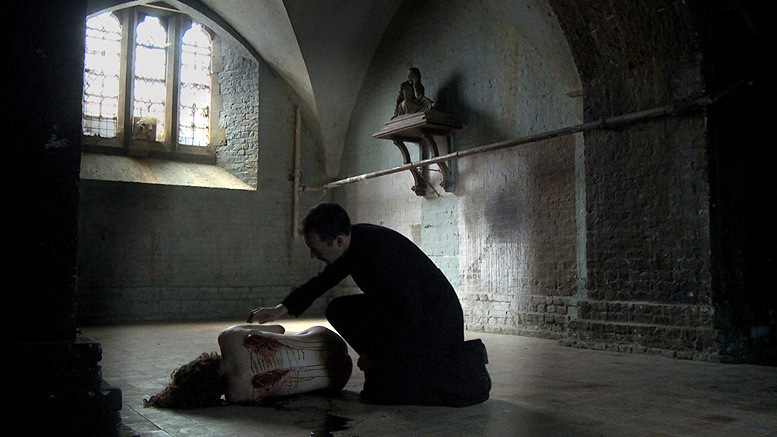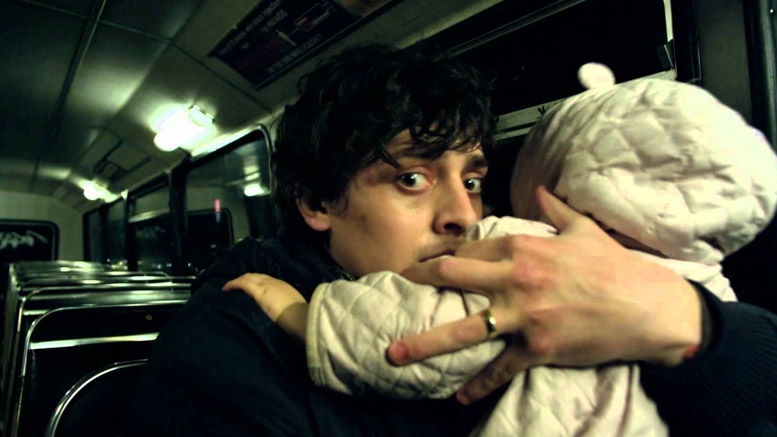 Nick Love, as with his regular collaborator Danny Dyer, is a rather divisive character; there’s no middle ground where his films are concerned, you either like them or loath them. In the case of Outlaw, the response was almost totally negative. Or, rather, the response from the critics was almost totally negative. ‘Ugly, naive and deeply unpleasant’, proclaimed Peter Bradshaw in The Gaurdian. ‘It’s almost impossible to image a nastier or more mean-spirited film’, pronounced someone or other from the Mirror. Philip French of the Observer, always the most astute of film critics, was at least generous enough to concede that it’s ‘slick, rabble-rousing stuff performed by a strong cast.’
Nick Love, as with his regular collaborator Danny Dyer, is a rather divisive character; there’s no middle ground where his films are concerned, you either like them or loath them. In the case of Outlaw, the response was almost totally negative. Or, rather, the response from the critics was almost totally negative. ‘Ugly, naive and deeply unpleasant’, proclaimed Peter Bradshaw in The Gaurdian. ‘It’s almost impossible to image a nastier or more mean-spirited film’, pronounced someone or other from the Mirror. Philip French of the Observer, always the most astute of film critics, was at least generous enough to concede that it’s ‘slick, rabble-rousing stuff performed by a strong cast.’
I doubt this concerns Love a huge deal. he’s carved out a certain niche for himself within the British film industry, making a series of low-to-middle budget, populist productions that appeal to a totally different type of audience to the kind of people who’d want to sit down and watch Atonement. And all power to him in that: he makes unashamedly working class films that are done with a certain verve and no lack of style. Goodbye Charlie Bright, his debut and best film, remains a far more accurate portrayal of living in a council estate than any number of Ken Loach films, and it’s far, far more likely to be watched and enjoyed by the kind of people who feature in it.
Outlaw is undoubtedly his most troubling film. It stars Sean Bean as an ex-soldier who returns from service in Iraq to find his wife shagging a new bloke and the whole country seemingly going to the dogs. Before long, he’s assembled a gang of like-minded people to form a vigilante force: there’s Gene (Dyer), a city boy who keeps on getting beaten up by people; Cedric (Lennie James), a prosecutor who’s wife has been murdered by a criminal kingpin; Sandy (Rupert Friend), left scarred for life after being viciously beaten up; and Simon (Sean Harris), a creepy security guard who’s just a bit of psycho. Together, they start hitting back at the street scum, most particularly the same kingpin who murdered Cedric’s wife. The police, however, are on their trail.
The topic of vigilatiism is one that’s always raised controversy, and it’s a difficult one. Love deliberately gives the majority of his characters understandable motivation – much as with Death Wish – and some viewers have mistaken this for an advocacy of taking the law into your own hands. Is this true? I’m not sure. There’s no way, for instance, you could ever sympathise with Simon, and the other characters become increasingly ragged as their activities get more and more violent, culminating with the execution of a criminal. It all culminates in a huge shoot out, at which point any justification for their actions really goes out the window. The whole plot, in other words, left me uncomfortable, not least because much of the dialogue could have been transcribed straight from the Jeremy Vine radio show, but I don’t really know how you can deal with this subject in a ‘reasonable’ way.
Beyond that, the film is competently made. Whatever you think of his work, Love is a talented filmmaker, certainly better than Guy Ritchie (who he’s often bracketed with). As well as Death Wish, it also has some similarities with the 70s vigilante films made in Italy, such as Castellari’s Anonymous Avenger, and as with them if you put your political views on hold and enjoy it as an action film it works pretty well. It also benefits from good performances by a charismatic cast. Bob Hoskins does a nice turn as a sympathetic cop, and Sean Harris is rapidly carving a niche for himself as twitchy nutters in a selection of interesting films (Frozen, Asylum, Trauma).


Yes, it is quite a brutal and visceral film, not really one to watch every single weekend, but no need to slaughter it mate. wanky review